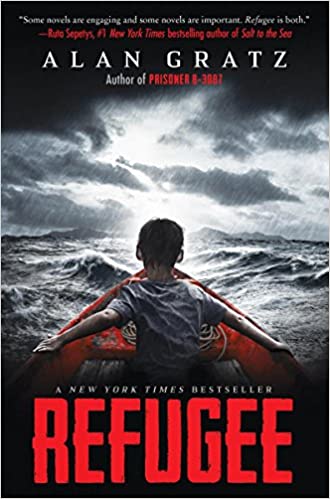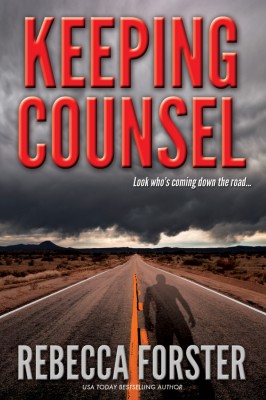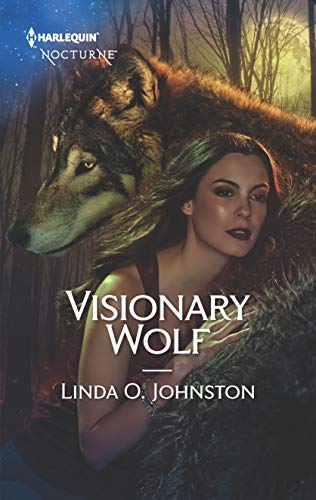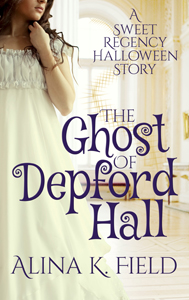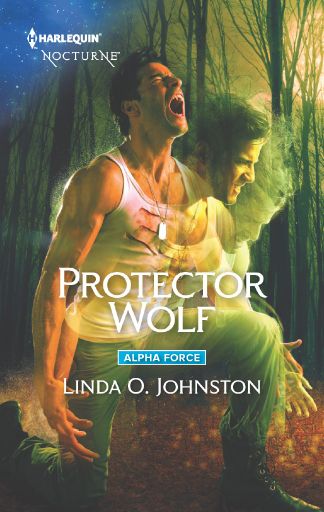REDUNDANT
September 19, 2018 by Jenny Jensen in category On writing . . . by Jenny Jensen tagged as editing, redundant, writing
REDUNDANT: adj. Exceeding what is necessary or natural; superfluous. Needlessly wordy or repetitive in expression. American Heritage Dictionary
In my editing business I come across redundancy a lot. That and it’s kissin’ cousin overwriting. Both are common, and excusable — especially in the draft stage. We all do it. A draft is the place to get every thought out and on the page. It isn’t surprising when your draft reads: “Conversation with Jason was so dull and boring he was putting Claire to sleep”. That’s a simple repetition of meaning within a single sentence and it’s easy to spot and fix. If Jason is so dull he’s putting Claire to sleep then clearly the guy is boring. Go for punchy: “Claire found conversation with Jason soporific.” If you’re looking for it you’ll spot the redundant meanings and as awareness grows even drafts lose the redundancies.
Redundant means needlessly wordy as well as repetitive and that’s a writing snafu that can suck the life right out of good story.
Despite her past history Shelia remained woefully sad about the unintentional mistake that she’d made a long time ago when she was just a silly, young adolescent and not the wise and knowing 17 year old she was now. She wished she could just postpone the principal’s request until later and deal with the whole ugly business in the future when she was older and prettier (as if that was even possible). Squaring her shoulders she pulled herself up, raised her chin, took an enriching deep breath and marched into Mr. Grisslywald’s office.
Wow, there it is: redundant kissing right up to over writing. They often go hand in hand like mismatched mittens. You know a book suffers from overwriting when you find yourself thinking “Get on with it…puhleese” in the middle of a chapter. But it’s easy to spot when self-editing. If a passage seems overly long take out all the words that don’t affect meaning and then question the necessity of what’s left. Does it move the story forward? Add anything to plot or character understanding? Strengthen foreshadowing or reinforce atmosphere? If not, cast the evil over writing out. Keep your narrative flowing with the essentials.
Having relayed all those warnings about redundancy, it does have a bright side. Repetition is a well-used literary technique. Used correctly and for the right reasons it’s very effective. Trigger words (or phrases) for example. Trigger words are words chosen to elicit an emotional response and can be very powerful when repeated throughout a story. A bit like metaphor, the meaning of a trigger word needs to be established early in the narrative i.e., what emotional response the author wants it to evoke. Then when that trigger word appears again and again in the appropriate place, the reader knows and feels that emotional response. It can be a very effective way to convey character motivation, or reinforce a story’s entire premise.
A story of mine opens with the narrator remembering her grandmother. Granny Mae Rae spit with disdain when talking of those women she called Passion Hearted. These are the women who can’t face their lot, accept the man they’re supposed marry, bear without fuss the children they’re fated to have and carry on with the chores of life without complaint. Instead they search for meaning, for some strange notion of fancy love, chasing after some fey idea of purpose. Granny Mae Rae knew all about purpose and it wasn’t Passion Hearted.
That term is explained up front and repeated throughout the narrative as the heroine comes to learn that she is one of Granny’s Passion Hearted. Her rags to riches character, who seeks a soul mate, is better understood and her motivations reinforced by repetition of that trigger. OK, mine may not be great literature but the technique works.
Repetition can be a really effective device if properly used, but as a natural consequence of writing it’s often redundant. Stay mindful of dull and boring, aware of unnecessary verbiage and repetitive descriptions and actions that don’t add anything. A clean, succinct narrative allows us readers to happily just get lost in the tale.
Jenny
2 0 Read moreWhat cocktail waitressing taught me about writing by Jina Bacarr
September 11, 2018 by Jina Bacarr in category Jina’s Book Chat, Writing tagged as author, books, cocktail, waitress, Writer, writing
I once worked as a cocktail waitress…great research for stories
Back in my sassy cocktail waitress days, I dreamed about being a writer. I worked until 3 a.m. cleaning up, checking stock, etc., then I’d go home and write. On a charming PC with a black screen and alien green text.
Ah, yes, those were the days.
Dreaming, planning. Wishing and hoping. Always believing if I worked hard enough, I’d get published.
No one told me the road to Oz was a long and winding one. A road filled with curves and pit stops and wrong turns.
Which brings me back to my days as a cocktail waitress. I got the job because I fit into the skimpy costume. A black fringe short, short dress. High, skinny black heels and fishnet stockings. I looked the part, but I had no idea what I was doing. The cute bartender helped me make up a list of the drinks on a placemat (I kept it as a souvenir) and I had adorable pink tip trays.
I spilled drinks. More than once. Okay, I spilled a lot of drinks.
The competition among the waitresses was fierce. Like a beauty pageant. I got punked by another waitress when she set me up with a grabby, belligerent customer who almost got me fired.
I got asked out on dates by customers, but I kept my nose clean. The only date I had after work was with a bear claw at the 24-hour doughnut store.
I became a darned good waitress. I learned the drinks by heart, got my tray balancing on like a pro, knew when to steer the bouncer to a table of tipsy, unruly drinkers, navigated the jealousy of the other girls, made good friends, and enjoyed the job.
So, what does all this have to do with writing?
Cocktail waitressing taught me that like writing, it’s not one thing that makes you good at what you do. Sometimes it’s going outside your comfort zone to get the job done. Whether that’s learning new technology, expanding your social media network when you have no idea what works, taking criticism (I learned how to serve a drink by dipping and bending my knees) and writing is rewriting. It’s about learning your craft, persistence, and getting through the tough moments when you want to quit. Have your cry and get over it.
I have several book projects on submission….keep you posted!
6 0 Read moreCooking with Words
August 19, 2018 by Jenny Jensen in category On writing . . . by Jenny Jensen tagged as cooking, language, words, writing

Words are a writer’s ingredients. We love words – obscure words, descriptive or emotional words, those sets that make up the language of a specialty. Creating a passage of the perfect words hits the poetic, emotional and dramatic sweet spot — it’s more satisfying than a perfectly risen soufflé. Those words are not always based on literal meaning; otherwise Oscar Wilde would never have written: “The curves of your lips rewrite history.”
I have always been taken with the vocabulary of cooking. This is probably because I can’t cook. Maybe I think if I learn that vocabulary I can wield it like an incantation and my split pea soup will magically look less frightening, smell inviting and even taste good. It hasn’t worked but culinary terms, as a set of words, continue to surprise me — they’re just so aggressive.
Macerate, whip, beat, truss, pulverize, grind, batter, beat, scald. Whoa! All this to get something beautiful, delicious and nutritious? It works for most cooks. No matter how I slice or dice, shred, mince or mash, it seldom works for me. Must be in how you understand the terms and in nuance of use. Culinary terms work just as well to describe a cage fight as they do with a recipe for Angel Food cake.
Jared didn’t blanch facing the mountain that was Killdeer Kilze. He’d whip this fight up – he had to – the kids hadn’t eaten in two days. Time to mince this guy and reduce his essence. Zest infused Jared’s system, juicing his blood as he minced the mountain’s nose with one lethal chop, shred his kneecap with another. Scalded by the roar of the drunken crowd he beat at the massive chest, macerating the ribs. Sliced, diced and filleted to perfection, Killdeer Kilze lay trussed like the appetizer he was. The kids would dine well tonight.
Cooking is a gentle, homey pursuit – though some of those chef shows can be down right bloody so maybe it’s the competitive aspect that accounts for the aggressive feel. These words aren’t really homonyms. They sound alike and are spelled alike but they don’t have different meanings. The difference is in the sense of the meaning.
Linguists and other learned folk call this fine distinction, Polysemy. It’s the distinction that good writers always make. It’s part of why poetry can rock your world. Seeking just the right words with just the right nuance can make a love scene monumental rather than simply sweet, or enfold the reader in the sight, smell and sound of a setting. It’s the choice and use of the right words that makes a story linger in the reader’s heart — something every writer wants.
I do wonder how our language developed to make this particular set of words work for such opposing concepts. Is there a conflicted warrior inside every woman? I don’t know but if I dig far enough I’m sure theories abound. And while I ponder this conundrum I do it…again. I fritter my time away on obscure concepts and my carefully mixed cornbread hits the cooling rack and bounces. It sounds like a hollow rock. Clearly, it takes more than knowing the right language to make a great cook. But it is knowing the right nuanced words that makes a great book.
Jenny
3 0 Read more
Cover Me
August 15, 2018 by Rebecca Forster in category The Write Life by Rebecca Forster tagged as books, communication, cover, cover design, covers, Craft, design, writing I find it difficult to write – or speak – in short form. To communicate, I must take not just the road less traveled but also all roads in between. My children say a conversation with me is like trying to keep your head above water in the ocean while being knocked about by swells and the occasional rogue wave. I’m not sure if my husband share’s this opinion. Then again, I’m not sure my husband’s hearing is up to snuff.
I find it difficult to write – or speak – in short form. To communicate, I must take not just the road less traveled but also all roads in between. My children say a conversation with me is like trying to keep your head above water in the ocean while being knocked about by swells and the occasional rogue wave. I’m not sure if my husband share’s this opinion. Then again, I’m not sure my husband’s hearing is up to snuff.
When my boys were small they begged me to write a children’s book. I ended with fifty thousand words and killed off most of the characters, so my one effort really wasn’t suitable for children (it was, however, the basis for a later novel).
I had a similar problem with lullabies. As a young mother I realized I didn’t know any. Still, I was determined to be maternal and sing my boys to sleep. In those days Cops was all the rage and the theme song was catchy, so I softly sang “bad boys, bad boys, whatcha going to do when Sheriff Brown comes for you?” Years later, my sons told me that they would stare wide-eyed into the night waiting for the police to come get them because they were pretty sure they were bad boys. Luckily, they have stopped asking me to write a children’s book and these days no one wants to hear me sing.
All this brings me to the point. It can be unbearably difficult for a cover designer to work with someone like me. Up front I am apologizing to Hadleigh O.Charles (cover designer) for my inability to be decisive, my tendency to forward six thousand royalty free photos for her consideration, and my failure to understand that the blue stripes at the top of an email mean there is something for me to download. Since I have learned nothing from my children’s assessment of my communication style, my emails to Hadleigh are like the verbal pinging of a steel ball inside a bell.
E-mail #1: Hadleigh, are you there? Hadleigh? I need a cover.
Hadleigh’s response: I’m here
E-mail #2: Well, it’s for the (fill in the blank) series and the story is about (fill in the character) and (fill in three thousand plot points) and I’m attaching a few images – but then again you probably have some ideas – so shoot me what you think and – oh, wait – how’s the dog? Hope it’s not too hot where you are. But then again the story really is about people buried in the desert – then again maybe a half naked woman on the front would be better. . . in silhouette, of course. . .”
Hadleigh’s response: Silence
E-mail #3 (usually a minute later so to be fair she hasn’t had time to respond): Hadleigh, really, you do what you want, but I don’t think we should have blood. Do you think we should have blood? Have you seen other thriller authors use a lot of blood? I’m going to visit my mom so don’t worry if you don’t hear from me for a day. . . Still, here are a couple of links – okay ten links – maybe more – so you can take a look at the top ten (maybe more) bestsellers in my genre – when you have time. But I would like to be a little different. Like them but not the same. Better. You know? Like bestseller better. No hurry. I’m seriously going to visit my mom overnight.
Hadleigh’s response: Silence (perhaps she knows that I am writing email #4 within five minutes of email #3)
E-mail #4: Five pages peppered with ideas, apologies for bothering her, explanations, useless terms that I think describe typeface, color and composition.
I hit DELETE.
Hadleigh’s response (a day or so later): Three beautiful covers that somehow incorporate tiny specks of rational thought mined from my manic ramblings. She also sends an update on her dog.
Unlike my children, Hadleigh does not lay wide-eyed and paralyzed by my avalanche of input, yet like my children she manages to figure out what’s important. Hadleigh, love you and every other cover designer out there. So happy you have all us authors covered.
 REBECCA FORSTER started writing on a crazy dare. Now she is a USA Today and Amazon best selling author with over 30 books to her name. These include the acclaimed Witness Series, Josie Bates Thrillers and her latest, The Finn O’Brien Thrillers. She is married to a superior court judge and is the mother of two grown children. When not writing, Rebecca is traveling the world looking for inspiration, sewing, playing tennis and reading.
REBECCA FORSTER started writing on a crazy dare. Now she is a USA Today and Amazon best selling author with over 30 books to her name. These include the acclaimed Witness Series, Josie Bates Thrillers and her latest, The Finn O’Brien Thrillers. She is married to a superior court judge and is the mother of two grown children. When not writing, Rebecca is traveling the world looking for inspiration, sewing, playing tennis and reading.
Sign up for Rebecca’s spam-free mailing list
Get your 2-Book Starter Library for Free!
Book #1 of the bestselling Josie Bates Thriller Series
HOSTILE WINTESS
And the exclusive Spotlight Novella
HANNAH’S DIARY
Rebecca’s
2 0 Read more
A Day with Damon Suede
August 4, 2018 by H. O. Charles in category Apples & Oranges by Marianne H. Donley, Events tagged as Damon Suede, Music City Romance Writers, Special Events, writingMusic City Romance Writers
September 2018 Event
A Day with Damon Suede
Registration now open for our MCRW September Event featuring Damon Suede!
When: Saturday, September 15, 2018 from 9:00 a.m. – 5:00 p.m. with optional evening session and Sunday morning breakfast (additional fees required).
Where: Four Points by Sheraton, 760 Old Hickory Blvd., Brentwood, TN 37027.
Registration link
Who: Damon Suede grew up out-n-proud in right-wing America, and escaped as soon as it was legal. He has earned his crust as a model, a messenger, a promoter, a programmer, a sculptor, a singer, a stripper, a bookkeeper, a bartender, a techie, a teacher, a director… but writing has ever been his bread and butter. Though new to romance fiction, Damon has been a full-time writer for print, stage, and screen for almost three decades. He has won some awards, but counts his blessings more often: his amazing friends, his demented family, his beautiful husband, his loyal fans, and his silly, stern, seductive Muse who keeps whispering in his ear, year after year.
Schedule:
| Saturday, September 15 | |
| 9:00 a.m. – 12:00 p.m. |
CHARACTER BUILDING: Action Figures Bestsellers start with fascinating people. Boost your writing process and anchor your career at any stage with a new characterization method that jumpstarts drafting, crafting, revision, and pitching. Go beyond looks, persona, and boilerplate traits so you can bust your ruts and build the perfect cast to dazzle your readers. This session includes: · skill-builders to intensify language, stakes, and emotion for your readers. · battle-tested solutions for common traps, crutches, and habits. · a dynamic story-planning strategy effective for plotters and pantsers. · exercises to help you upgrade stories in any genre. In this deep-dive morning session, we’ll take your fictional folks to the next level with a simple, powerful technique that will strengthen your people, your plots, your hooks, and your voice. Whether you like to wing it or bring it, you’ll leave this workshop with a new set of practical, language-based tools to populate your pages and lay the foundations of unforgettable genre fiction. |
| 12:00 p.m. – 1:00 p.m. | Lunch (included with registration fee) |
| 1:00 p.m. – 5:00 p.m. |
FIND YOUR GAME FACE This hands-on workshop on presence and platform will teach you how to identify a personal archetype to embody your brand and launch your projects in the genre marketplace. In this session you’ll learn to: · evoke story patterns that protect and project your professionalism. · harness the power of personal goals and a public platform, on- and offline. · tailor your message to open doors and attract the right kind of attention. · cultivate a healthy A-gang to minimize headaches and boost promo. A strategic authorial presence can be a game changer for your career. This class will show you how to groom and broadcast your unique appeal, so you become your own best advertisement |
| 7:00 p.m. – 8:30 p.m. |
SELLING STORIES (Optional Evening Session – additional fee required) Does your marketing copy earn its keep? This session tackles the wild, woolly world of blurbs and explore the way a high concept premise can anchor a project before and during the writing process. We’ll drill down into the challenges of summarizing your story’s strongest selling point. We’ll unpack the knack of crafting a clear hook, a free prize, and boiling a project into a logline that closes the sale, before and after publication. |
| Sunday, September 16 | |
| Time TBD |
SMALL GROUP BREAKFAST (Optional Morning Session – additional fee required) Get all of your marketing questions answered in this small group breakfast discussion with Damon. Space is very limited for this option, and will be filled on a first come, first served basis. The cost of breakfast at the Four Points by Sheraton on-site restaurant is not included with the registration fee. |
Cost:
| Register between
July 1 – July 31 |
Register between
August 1- September 7 |
||
| MCRW Members: | $65.00 | MCRW Members: | $75.00 |
| Non-Members: | $75.00 | Non-Members: | $85.00 |
| Optional Evening Session: Selling Stories | $20.00 | Optional Evening Session: Selling Stories | $20.00 |
| Optional Sunday Breakfast (cost of food not included): | $20.00 | Optional Sunday Breakfast (cost of food not included): | $20.00 |
| Registration closes for members and non-members on September 8, 2018 | |||
Guest rooms are $129.00 plus applicable state and local taxes.
Click here to reserve your room or call 615-964-5500 and ask for the Music City Romance Writers group rate. Our discounted rate is only available until August 14, 2018.
For more information about becoming a MCRW member, click here.
To Register for A Day with Damon Suede: CLICK HERE
Refund Policy: Due to our timeline for securing meals and materials, we are not able to offer refunds after August 15.
0 0 Read more
Affiliate Links
A Slice of Orange is an affiliate with some of the booksellers listed on this website, including Barnes & Nobel, Books A Million, iBooks, Kobo, and Smashwords. This means A Slice of Orange may earn a small advertising fee from sales made through the links used on this website. There are reminders of these affiliate links on the pages for individual books.
Search A Slice of Orange
Find a Column
Archives
Featured Books
VISIONARY WOLF (Alpha Force)
Can she love the wolf…
Inside the man?
Newsletter
Contributing Authors
Search A Slice of Orange
Find a Column
Archives
Authors in the Bookstore
- A. E. Decker
- A. J. Scudiere
- A.J. Sidransky
- A.M. Roark
- Abby Collette
- Alanna Lucus
- Albert Marrin
- Alice Duncan
- Alina K. Field
- Alison Green Myers
- Andi Lawrencovna
- Andrew C Raiford
- Angela Pryce
- Aviva Vaughn
- Barbara Ankrum
- Bethlehem Writers Group, LLC
- Carol L. Wright
- Celeste Barclay
- Christina Alexandra
- Christopher D. Ochs
- Claire Davon
- Claire Naden
- Courtnee Turner Hoyle
- Courtney Annicchiarico
- D. Lieber
- Daniel V. Meier Jr.
- Debra Dixon
- Debra H. Goldstein
- Debra Holland
- Dee Ann Palmer
- Denise M. Colby
- Diane Benefiel
- Diane Sismour
- Dianna Sinovic
- DT Krippene
- E.B. Dawson
- Emilie Dallaire
- Emily Brightwell
- Emily PW Murphy
- Fae Rowen
- Faith L. Justice
- Frances Amati
- Geralyn Corcillo
- Glynnis Campbell
- Greg Jolley
- H. O. Charles
- Jaclyn Roché
- Jacqueline Diamond
- Janet Lynn and Will Zeilinger
- Jaya Mehta
- Jeannine Atkins
- Jeff Baird
- Jenna Barwin
- Jenne Kern
- Jennifer D. Bokal
- Jennifer Lyon
- Jerome W. McFadden
- Jill Piscitello
- Jina Bacarr
- Jo A. Hiestand
- Jodi Bogert
- Jolina Petersheim
- Jonathan Maberry
- Joy Allyson
- Judy Duarte
- Justin Murphy
- Justine Davis
- Kat Martin
- Kidd Wadsworth
- Kitty Bucholtz
- Kristy Tate
- Larry Deibert
- Larry Hamilton
- Laura Drake
- Laurie Stevens
- Leslie Knowles
- Li-Ying Lundquist
- Linda Carroll-Bradd
- Linda Lappin
- Linda McLaughlin
- Linda O. Johnston
- Lisa Preston
- Lolo Paige
- Loran Holt
- Lynette M. Burrows
- Lyssa Kay Adams
- Madeline Ash
- Margarita Engle
- Marguerite Quantaine
- Marianne H. Donley
- Mary Castillo
- Maureen Klovers
- Megan Haskell
- Melanie Waterbury
- Melisa Rivero
- Melissa Chambers
- Melodie Winawer
- Meriam Wilhelm
- Mikel J. Wilson
- Mindy Neff
- Monica McCabe
- Nancy Brashear
- Neetu Malik
- Nikki Prince
- Once Upon Anthologies
- Paula Gail Benson
- Penny Reid
- Peter J Barbour
- Priscilla Oliveras
- R. H. Kohno
- Rachel Hailey
- Ralph Hieb
- Ramcy Diek
- Ransom Stephens
- Rebecca Forster
- Renae Wrich
- Roxy Matthews
- Ryder Hunte Clancy
- Sally Paradysz
- Sheila Colón-Bagley
- Simone de Muñoz
- Sophie Barnes
- Susan Kaye Quinn
- Susan Lynn Meyer
- Susan Squires
- T. D. Fox
- Tara C. Allred
- Tara Lain
- Tari Lynn Jewett
- Terri Osburn
- Tracy Reed
- Vera Jane Cook
- Vicki Crum
- Writing Something Romantic
Affiliate Links
A Slice of Orange is an affiliate with some of the booksellers listed on this website, including Barnes & Nobel, Books A Million, iBooks, Kobo, and Smashwords. This means A Slice of Orange may earn a small advertising fee from sales made through the links used on this website. There are reminders of these affiliate links on the pages for individual books.


